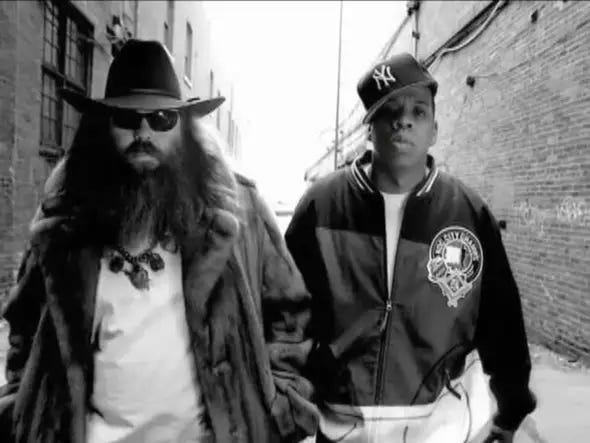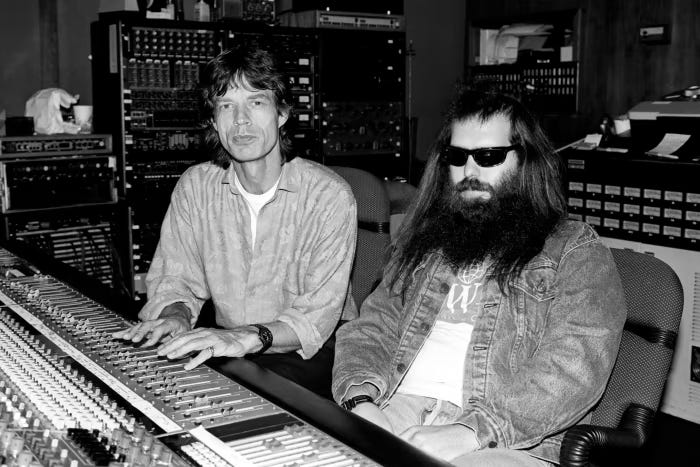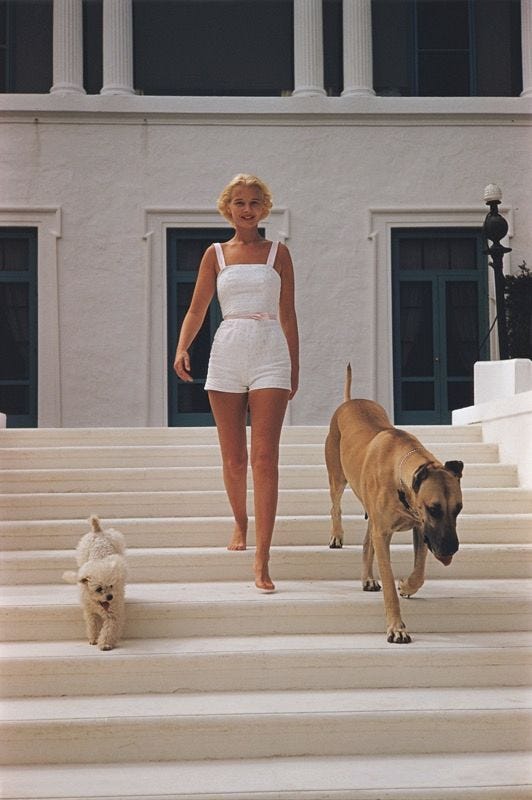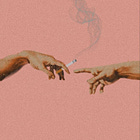Taste Is the New Intelligence
Why curation, discernment, and restraint matter more than ever

We’re drowning in content.
Every platform, every scroll, every second—more inputs, more noise, more things trying to hook your attention. The old metrics of intelligence—who memorized the most, who spoke the loudest, who finished the book first—don’t mean much here.
In an age where AI can generate anything, the question is no longer "can it be made?" but "is it worth making?" The frontier isn’t volume—it’s discernment. And in that shift, taste has become a survival skill.
Not taste in the superficial sense—not trend-chasing, not aesthetic mimicry, not expensive minimalism for the sake of status. Real taste. The kind that signals coherence. Clarity. The ability to choose what matters in a world drowning in what doesn’t.
Because when abundance is infinite, attention is everything. And what you give your attention to—what you consume, what you engage with, what you amplify—becomes a reflection of how you think.
We used to associate intelligence with accumulation. The smartest people were the ones who knew the most. But that model doesn’t hold anymore. AI knows more than anyone. Wikipedia is free. The internet has flattened information access so thoroughly that hoarding knowledge is no longer impressive. What matters now is what you do with it. How you filter it. How you recognize signal in the noise.
Curation is the new IQ test.
Taste is often dismissed as something shallow or subjective. But at its core, it’s a form of literacy—a way of reading the world. Good taste isn’t about being right. It’s about being attuned. To rhythm, to proportion, to vibe. It’s knowing when something is off, even if you can’t fully articulate why.
The people with taste aren’t always the loudest. They’re the ones whose work has resonance. Whose rooms feel calm. Whose recommendations always land. They have an internal tuning fork that rejects the cheap dopamine of novelty for something more enduring.
This isn’t just about design. It’s about thought. Taste is what allows you to skim past the performative noise, the fake depth, the viral bait, and know—instinctively—what’s worth your time.
Rick Rubin is one of the most iconic tastemakers of our time. Producer, collaborator, cultural whisperer—Rubin’s career spans from LL Cool J to Johnny Cash to Lana Del Rey. He’s worked across genres, generations, and industries, yet his fingerprint is instantly recognizable.
What sets Rubin apart isn’t technical mastery. It’s attention. Intuition. The ability to sense what feels right before it’s logically apparent why it works. His presence in a studio isn’t to dictate. It’s to sense. To listen deeply. To cut away noise until the essential emerges.
Rubin was vibe coding before that was even a phrase.
In his book The Creative Act, he hardly mentions a single name. His own name is barely on the cover—and definitely isn’t centered. Because to Rubin, what matters is the art—not the clout. Not the metrics. Just the resonance. That restraint is the point. The book is a masterclass in taste without performance. Clarity without ego.


His entire model is vibe-forward. He doesn’t read music. He often doesn’t even give notes. He just sits, listens, and senses. And that sensibility—that coherence of taste—is what makes him great. Not because he defines the sound, but because he knows when it’s right.
And that’s what real taste is: a deep internal coherence. A way of filtering the world through intuition that’s been sharpened by attention.
“I don’t know anything about music. My job is to listen—to feel whether it’s alive.”
— Rick Rubin
Curation used to be the job of gatekeepers. Editors, publishers, gallery curators, academic boards. They weren’t perfect, but they filtered. Now the gates are gone. Or at least, they’ve moved. Everyone is a publisher. Everyone is a creator. Everyone has a platform.
This democratization is beautiful. It’s also overwhelming. When anyone can make anything, and everyone is shouting into the void, the question isn’t "what should I make?" but "what should I ignore?"
This is where taste becomes essential. Because curation isn’t just about art or objects—it’s about inputs. What you read. What you follow. What you trust.
Algorithms respond to what you consume, so your inputs shape your outputs. If you watch drama, it feeds you chaos. If you seek signal, it feeds you depth. The algorithm isn’t biased—it’s obedient.
That’s why taste is a responsibility. It’s not just about what you like. It’s about what you allow in.
Taste is how you protect your mental environment.
“Everything we come into contact with has the potential to influence our taste. So the art of living well includes the art of feeding your input stream.” — Rick Rubin
You curate your life whether you mean to or not. Your feed, your home, your bookshelf, your calendar—all of it reflects how you see. And increasingly, we’re being asked to see through systems that don’t care about coherence—they care about clicks.
Algorithms are not neutral. They are amplifiers of our least intentional selves. The parts of us that want stimulation without friction, validation without discernment.
That’s why being passive online is so dangerous. The longer you scroll, the more your feed trains your taste—and not always in the direction you’d want.
TikTok teaches you to crave dopamine.
Instagram teaches you to compare.
𝕏 teaches you to perform.
Substack—if you let it—can teach you to think.
But only if you’re intentional.
We now get to curate our own environments. That’s power. But it’s also responsibility. Because taste isn’t just what you consume. It’s what you amplify. It’s what you normalize. It’s what you signal to others is worth attention.
You are what you pay attention to.
In a chaotic system, fragile things break. Taste is anti-fragile. It gets stronger the more noise you expose it to—if you’re paying attention.
When you sharpen your discernment, you stop being swayed by trends. You stop needing consensus. You stop reacting to every new thing like it’s urgent.
You become someone who builds their own signal—because you know how to listen for it. You know what feels grounded. And you trust that instinct more than the metrics.
Taste is what survives.
Trends come and go—cottagecore, coastal grandma, goblin mode, clean girl, brat summer, whatever’s next. But the people who endure aren’t optimizing for today. They’re building libraries. Languages. Signature worlds that last.
Most people online are just echoing whatever is already echoing. Repeating frameworks. Recycling language. Riding hashtags.
But taste requires subtraction. It means not participating in every viral moment. It means not resharing something just because it’s getting attention. It means opting out of the churn.
That doesn’t mean being contrarian for the sake of it. It means noticing when the culture’s default setting no longer reflects what’s true for you—and walking away.
This is intelligence. Not in the IQ sense, but in the "I know what matters" sense. In the "I know who I am without the algorithm telling me" sense.
Trend is not inherently bad. But when you build your identity around it, you become a vessel for the algorithm—not a creator of your own world.
We’ve seen this a hundred times: a brand catches a wave, goes viral, then disappears. Not because the product was bad—but because the identity wasn’t real.
There will always be creators. But the ones who stand out in this era are also curators. People who filter their worldview so cleanly that you want to see through their eyes. People who make you feel sharper just by paying attention to what they pay attention to.
Curation is care. It says: I thought about this. I chose it. I didn’t just repost it. I didn’t just regurgitate the trending take. I took the time to decide what was worth passing on.
That’s rare now. And because it’s rare, it’s valuable.
We think of curation as a luxury. But it’s actually maintenance. It’s how you care for your mind. Your attention. Your boundaries.
Every time you choose what not to consume, you’re protecting the integrity of your focus.
Every time you read something thoughtful instead of watching some random show Netflix just recommended, you’re voting for your future self.
Every time you build a library instead of a wishlist, you’re telling your mind what it’s allowed to prioritize.
Taste is how you teach the world to treat your attention.
Some people express that through aesthetics—through design, style, or tone. Others do it through habits—what they allow, what they decline. Either way, the underlying message is the same:
"This matters to me."
I’ve always loved to curate. My playlists. My bookshelves. My Substack topics. Not because I’m trying to impress anyone, but because it helps me stay in touch with who I am.
Taste is how you organize your inner world. What you let in. What you keep out.
When everything is infinite, curation becomes sacred.
Good taste isn’t narrow. It’s consistent.
Slim Aarons once said he photographed “attractive people doing attractive things in attractive places.” And it worked—not because it was exclusive, but because it was coherent. His images had a mood. A throughline. Golden light, leisure class, soft voyeurism. Whether he was shooting Palm Beach heiresses or ski resorts in Gstaad, you could feel when it was Slim.
Taste, at that level, isn’t just visual. It’s narrative. It’s cohesion. The light, the posture, the leisure—it all belonged to the same internal world.




Same with Steve Jobs. His taste wasn’t just in design—it was in reduction. In removing everything non-essential. That mindset showed up in his wardrobe, his products, his presentations. His life was an exercise in distillation.

Steve Jobs famously said, “Ultimately, it comes down to taste. It comes down to trying to expose yourself to the best things that humans have done, and then try to bring those things into what you’re doing.”
Taste isn’t about having one interest. It’s about threading coherence through your many interests. It’s the connective tissue between the books on your shelf, the music in your car, the way you write emails. It doesn’t mean boring. It means intentional.
This is where we come full circle.
Rick Rubin talks about life through “the prism of self.” Not as a fixed identity, but as a set of lenses you rotate depending on context. You’re not one thing. But your taste should still feel you—across rooms, across mediums, across seasons.
Coherence doesn’t mean sameness. It means alignment.
Good taste isn’t restrictive. It’s expansive. It allows you to contain multitudes without becoming incongruent.
You can write about AI, make soup from scratch, and listen to Gregorian chants—if those things belong to the same internal world. If they reinforce a mood, an ethos, a truth. The energy signature that makes it all yours.
We associate aesthetic with surface. But good taste is deep structure. It’s the throughline in someone’s life. You can see it in the design of their home, the cadence of their speech, the way they treat people, the books on their shelves.
Taste is how you live a congruent life. Not in the sense of brand consistency, but in the sense of spiritual alignment. You can change your mind. Explore new spaces. But your values stay intact. Your center holds.
This is the difference between eclectic and scattered. Between multidimensional and messy. Taste is what gives your multitudes a spine.
There’s a reason good taste feels rare: it requires patience. It’s the result of exposure, restraint, and refinement.
Cheap dopamine is easy. That’s what TikTok feeds you. That’s what trend cycles encourage. Fast hit, short half-life.
Having taste often means choosing the thing that’s harder up front but more satisfying later. The slow movie. The challenging read. The outfit you wait to afford instead of buying five that kind of work.
It’s the marshmallow test in daily life. A million micro-decisions between now and better later.
Bad taste is immediate. It’s sugar. It’s scrolling. It’s dopamine without digestion.
Good taste is remembered. It lingers. It teaches. It reshapes your interior.
Not because it’s expensive or elite—but because it asked something of you.
We’re not just what we consume. We’re how we consume.
And in a world where the cheapest dopamine wins by default, taste is how you opt out.
Not to impress anyone.
But to protect your soul.
So you wait. You resist the clickbait. You bypass the novelty. And you build a life—creative, digital, physical—that actually reflects your values.
Underneath all of this is something deeper: taste as a spiritual orientation. Not in the religious sense, but in the felt sense of alignment. Of knowing what your energy wants. Of feeling what’s harmonious and what’s out of tune.
Taste is how you stay in conversation with your intuition.
It’s how you recognize beauty. Not the Instagram kind. The kind that rearranges your nervous system. The kind that makes you still. The kind that can’t be explained, only felt.
When you move through the world with that kind of orientation, everything gets sharper. You choose better people. Better projects. Better inputs.
Taste isn’t something you’re born with. It’s something you tune over time.
You sharpen it by paying attention—to what moves you, what drains you, what you return to without being told. You study the things that linger. The book you keep thinking about. The line that made you pause. The image that reorganized your mood.
You build taste the same way you build strength: by choosing the heavier lift. The richer input. The slower hit. The thing that doesn’t give you a dopamine spike, but gives you a deeper signal.
And you prune. Ruthlessly. You unsubscribe, unfollow, unlearn. You stop letting junk into your mental bloodstream. You notice how you feel after scrolling, after shopping, after watching. And if something feels cheap, you stop feeding it.
Because taste is a diet. And your mind is always becoming what it consumes.
So you treat your inputs like they matter—because they do. And you let your attention become an act of reverence.
That’s how you cultivate taste. Not as status. But as self-respect.
“A sense of taste is just another name for a personal standard, and standards are always personal.” — Clive James
As always, thanks for reading with me. Writing has been an integral part of my journey so if you enjoyed this post, please consider hitting the like button and/or sharing it to help boost its visibility. I appreciate you so much. xo





















"So you treat your inputs like they matter—because they do. And you let your attention become an act of reverence."
I really enjoyed reading your essay, it has given me so much to think about. I am on the journey you talk about, a little late in life - I'm old - but enjoying becoming me. It isn't a 'look at me' thing, more a slowness and richness that threads through reading and music and food and how I 'am' in the world. Sometimes I need courage to step out of line of my conditioning, I guess algorithms have always been there, choosing how to behave, what to wear, listen too, believe. All of it more about others than any core self belief.
And you are right. Taste is about self respect, perhaps strength of character, courage.
Thank you for posting, you've made a difference to my day and the days beyond.
Develop your taste. It will make you and the ones you interact with more fulfilled.